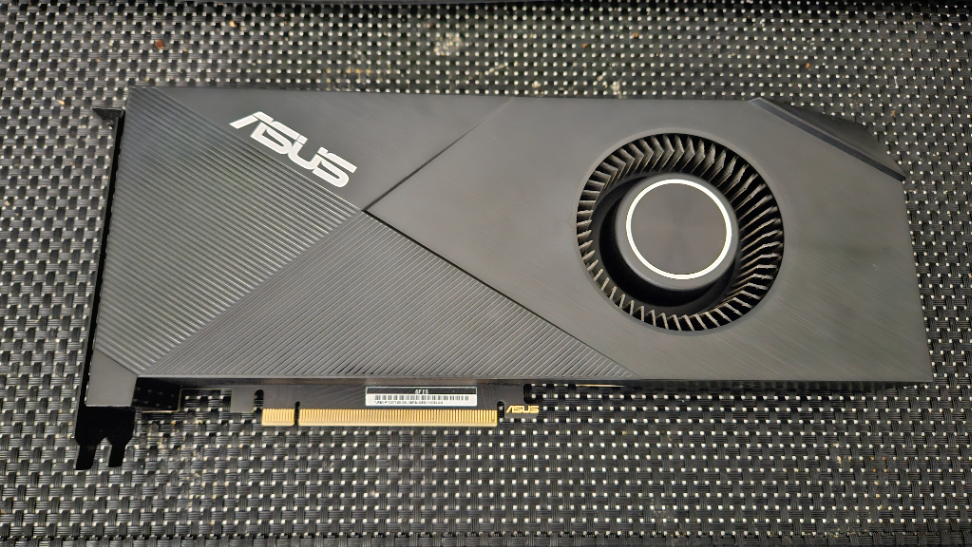7 years later, Valve's Proton has been an incredible game-changer for Linux
-
This post did not contain any content.
-
This post did not contain any content.
This is not a battle between Linux and Windows. It is a battle between the Steam Deck versus the Desktop PC platform (windows users). Stop with the claiming Linux marketshare over it.
I'm off to celebrate how widely BSD is used because technically the Playstation uses it and the switch incorporates code from FreeBSD. BSD derivitives are the most popular game console OS. It's the year of BSD!
-
This is not a battle between Linux and Windows. It is a battle between the Steam Deck versus the Desktop PC platform (windows users). Stop with the claiming Linux marketshare over it.
I'm off to celebrate how widely BSD is used because technically the Playstation uses it and the switch incorporates code from FreeBSD. BSD derivitives are the most popular game console OS. It's the year of BSD!
Proton existed long before the Steam Deck, and before that as DXVK.
This is a battle between closed proprietary OS and open source. Proton enables translating DirectX/Windows APIs not only to Vulkan/Linux x86, but even to ARM and BSD.
-
This is not a battle between Linux and Windows. It is a battle between the Steam Deck versus the Desktop PC platform (windows users). Stop with the claiming Linux marketshare over it.
I'm off to celebrate how widely BSD is used because technically the Playstation uses it and the switch incorporates code from FreeBSD. BSD derivitives are the most popular game console OS. It's the year of BSD!
This makes Linux desktop a viable option for millions of users where it wasn't before. It's absolutely a battle between Linux and Windows.
-
This is not a battle between Linux and Windows. It is a battle between the Steam Deck versus the Desktop PC platform (windows users). Stop with the claiming Linux marketshare over it.
I'm off to celebrate how widely BSD is used because technically the Playstation uses it and the switch incorporates code from FreeBSD. BSD derivitives are the most popular game console OS. It's the year of BSD!
Do you know what I did last week thanks to Proton? Installed EndeavourOS on my freshly purchased laptop, installed steam, and installed a bunch of Windows games. Then I played them. At no point did I wonder whether they would run.
Now, you may think being able to do that isn't something that is going to get more people using desktop Linux (or that it hasn't already done so), but as much as I'd love to agree with you, then we'd both be wrong.
I say this as someone who used to care about convincing other people to use Linux. (Before shifting into "you can lead a horse to water..." mode, and now I just don't give a shit.)
However, what I gained from that experience is this: In twenty years of being Linux-only on my personal desktop, the number of times I have read the phrase, "I'd love to use Linux, except for [some statement about a game or games]" is astronomical.
Now, is Proton going to make desktop Linux the best choice for everyone? Clearly not, duh. But it is remarkably disingenuous to suggest that it's not had a massive benefit to the Linux community and ecosystem as a whole, including, and dare I say especially, desktop Linux. It is flat out impossible to imagine that a substantial portion of current and future Linux users aren't people for whom Proton solved what they considered to be a substantial barrier to usage.
-
This is not a battle between Linux and Windows. It is a battle between the Steam Deck versus the Desktop PC platform (windows users). Stop with the claiming Linux marketshare over it.
I'm off to celebrate how widely BSD is used because technically the Playstation uses it and the switch incorporates code from FreeBSD. BSD derivitives are the most popular game console OS. It's the year of BSD!
Cry me a river..
-
This is not a battle between Linux and Windows. It is a battle between the Steam Deck versus the Desktop PC platform (windows users). Stop with the claiming Linux marketshare over it.
I'm off to celebrate how widely BSD is used because technically the Playstation uses it and the switch incorporates code from FreeBSD. BSD derivitives are the most popular game console OS. It's the year of BSD!
The Bazzite console I built which is connected to my living room TV stands in contradiction. The Linux-driven gaming PC that’s sitting on my desk is confirmation.
Windows 11 and the forced obsolescence of hardware is leaving a sour aftertaste, and at this point a game maker essentially has to choose to not support Linux via Proton.
You might not be able to run Battlefield or CoD, but Marvel Rivals and Overwatch run particularly well, if not better on Linux.
And with Microsoft entering the handheld market, this is very much a question of Linux vs Windows for gaming.
-
This post did not contain any content.
Whatever allows us to leave the clusterfuck that is Windows is a blessing. M$ has had a monopoly for too long and I'm not paying for MacOS.
-
This is not a battle between Linux and Windows. It is a battle between the Steam Deck versus the Desktop PC platform (windows users). Stop with the claiming Linux marketshare over it.
I'm off to celebrate how widely BSD is used because technically the Playstation uses it and the switch incorporates code from FreeBSD. BSD derivitives are the most popular game console OS. It's the year of BSD!
Fortunately Valve publishes monthly hardware statistics so we can back claims with statistics. Linux comprises 2.89% of their surveyed share. Of that 28.31% are using Steam OS. Using the wayback machine we can check the statistics from last year. Checking the July 2024 results using the Wayback Machine shows Linux at 2.08% with Steam OS comprising 40.97% of that.
From that we can see that Linux is growing, while Steam OS is becoming less of a contributing factor to the Linux share.
-
This makes Linux desktop a viable option for millions of users where it wasn't before. It's absolutely a battle between Linux and Windows.
Years ago I made the switch to Linux, then I wanted to play WOW again but it would not run on my Linux machines, so I started to dual boot. Then I began to wonder why I was keeping Linux installed.
Eventually I made the shift to macOS because I worked in theatre and needed it for specific Mac only programs. But I still have a Lenovo legion that I am getting ready to swap over to Linux (not that all of the games I currently play do not run on macOS or my steam deck).
If I was able to get WOW running on Linux years ago I likely never would have swapped back to windows. And I am currently trying to convince my son to install Linux on his pc running windows 10.
-
Proton existed long before the Steam Deck, and before that as DXVK.
This is a battle between closed proprietary OS and open source. Proton enables translating DirectX/Windows APIs not only to Vulkan/Linux x86, but even to ARM and BSD.
Couple technical nitpicks.
First it's debatable if Proton existed long before Steam Deck. I'm not sure the exact timeline but I think it was created as part of the Steam Box effort which wasn't all that long ago. On the other hand though Wine which Proton is built on top of most certainly has existed for a very long time before either the Steam Deck or even Proton (I have fond memories of LAN gaming with it back when Diablo 2 was new).
Second Proton doesn't enable ARM (at least by itself) so that claim is a little misleading. There is a project to realtime translate x86 instructions into ARM but that project (Box86) although it fulfills a similar role and could be used in conjunction with Proton isn't actually Proton. Using Proton by itself will not enable you to play x86/Windows games on ARM.
Lastly Proton is kind of irrelevant to the whole Linux vs BSD thing. Technically what enables that is that both implement POSIX standards plus use mostly the same libraries, frameworks (like Vulkan), and applications. Yes running Proton on BSD will let you game on BSD but that isn't really a result of Proton doing the work so much as it's a side effect of the fact you can run Proton on BSD in the first place. Additionally while there are technical and philosophical reasons why the distinction between Linux and BSD is important, practically speaking they're the same thing these days. OpenBSD isn't that much more different from a Linux distro as one Linux distro is from another.
-
This is not a battle between Linux and Windows. It is a battle between the Steam Deck versus the Desktop PC platform (windows users). Stop with the claiming Linux marketshare over it.
I'm off to celebrate how widely BSD is used because technically the Playstation uses it and the switch incorporates code from FreeBSD. BSD derivitives are the most popular game console OS. It's the year of BSD!
If BSD had a the same software license as Linux then I would celebrate it running on PlayStation hardware as users would be more free. Instead PS consoles are locked-down, preventing you from running software you want to use unless daddy Sony says you can. It's a battle between consumer rights, including software freedom.
-
This is not a battle between Linux and Windows. It is a battle between the Steam Deck versus the Desktop PC platform (windows users). Stop with the claiming Linux marketshare over it.
I'm off to celebrate how widely BSD is used because technically the Playstation uses it and the switch incorporates code from FreeBSD. BSD derivitives are the most popular game console OS. It's the year of BSD!
Obligatory Steam Deck runs Linux BTW.
-
Whatever allows us to leave the clusterfuck that is Windows is a blessing. M$ has had a monopoly for too long and I'm not paying for MacOS.
macOS has been free for, like, 15 years.
Yes, you have to already own an Apple computer, but Apple users don’t pay for OS upgrades.
Technically, anyone could download the OS images, but there’s not a lot that non-Apple users can do with them.
-
This is not a battle between Linux and Windows. It is a battle between the Steam Deck versus the Desktop PC platform (windows users). Stop with the claiming Linux marketshare over it.
I'm off to celebrate how widely BSD is used because technically the Playstation uses it and the switch incorporates code from FreeBSD. BSD derivitives are the most popular game console OS. It's the year of BSD!
I haven't booted windows in like 6 months and I game on my desktop PC like 4 times a week.
Edit: also https://www.protondb.com/ distinguishes reports between steam deck and PC so you can see that people are using both there as well.
-
Years ago I made the switch to Linux, then I wanted to play WOW again but it would not run on my Linux machines, so I started to dual boot. Then I began to wonder why I was keeping Linux installed.
Eventually I made the shift to macOS because I worked in theatre and needed it for specific Mac only programs. But I still have a Lenovo legion that I am getting ready to swap over to Linux (not that all of the games I currently play do not run on macOS or my steam deck).
If I was able to get WOW running on Linux years ago I likely never would have swapped back to windows. And I am currently trying to convince my son to install Linux on his pc running windows 10.
Strange, WOW should have been able to run. Maybe needed a command line switch to enable OpenGL for optimal performance. But back then Blizzard games had a great track record of Wine compatibility. I never had any problems with their games.
There was one instance of Linux WOW players being banned for cheating. But that was rectified in a matter of days.
-
Strange, WOW should have been able to run. Maybe needed a command line switch to enable OpenGL for optimal performance. But back then Blizzard games had a great track record of Wine compatibility. I never had any problems with their games.
There was one instance of Linux WOW players being banned for cheating. But that was rectified in a matter of days.
This was 2006/2007 I think. Every article I read about it had a different solution and none worked fully.
I also remember when I asked for help on wow centric forums being crappy replies of "don't use Linux" and when I would post on Linux centric spaces getting "don't play wow" replies.
-
Proton existed long before the Steam Deck, and before that as DXVK.
This is a battle between closed proprietary OS and open source. Proton enables translating DirectX/Windows APIs not only to Vulkan/Linux x86, but even to ARM and BSD.
Proton is mostly Wine, not DXVK. Wine does the translation of Windows and some DirectX APIs. DXVK translates Direct3D to Vulkan. Proton pulls it all together with some game specific patches, integration with gamescope and other Steam specific integrations.
All of this being open source means it can also be compiled for ARM and BSD. Though to get x64 games to run on ARM you need an additional emulation layer like Box64.
Though rumor has it that Valve is already experimenting with x64 emulation for their Deckard project, which is likely to be their next VR headset.
-
This was 2006/2007 I think. Every article I read about it had a different solution and none worked fully.
I also remember when I asked for help on wow centric forums being crappy replies of "don't use Linux" and when I would post on Linux centric spaces getting "don't play wow" replies.
Boo! I've added "help nocturne play wow on Linux" to my todo list when my time machine is done.
-
macOS has been free for, like, 15 years.
Yes, you have to already own an Apple computer, but Apple users don’t pay for OS upgrades.
Technically, anyone could download the OS images, but there’s not a lot that non-Apple users can do with them.
Hackintosh is a thing (or at least used to be), but it’s against the EULA.






